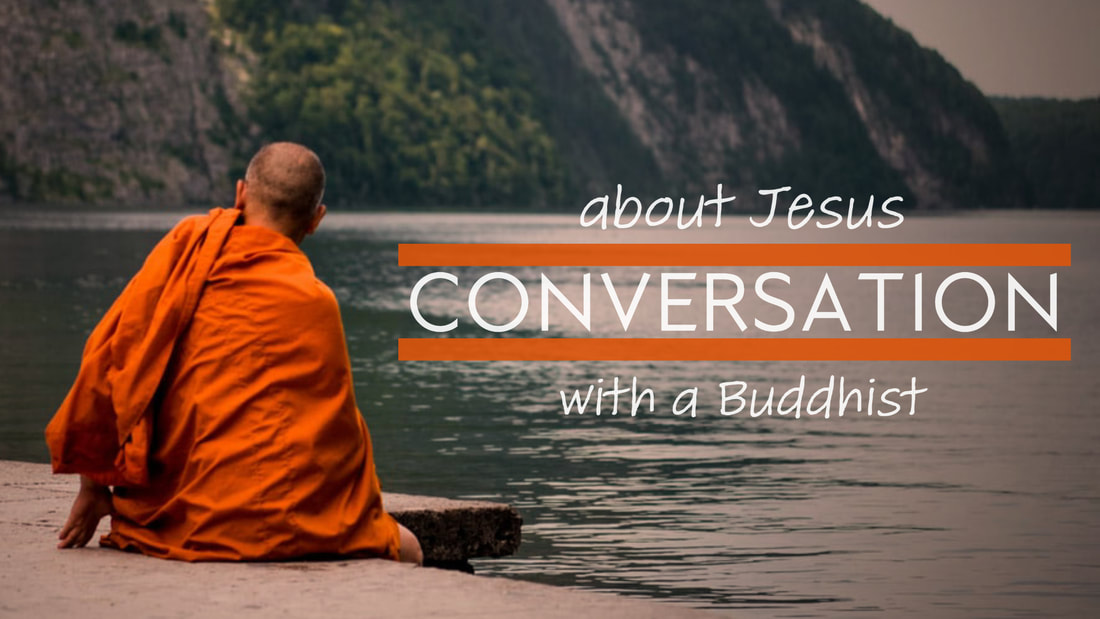Savannah McPhail, BJU StudentSavannah is a senior communication major at Bob Jones University. Having lived in Cambodia most of her life as an MK, she has interacted with many Buddhists.
________ The first time I had to make a stand for Christ against Buddhism was when I was nine years old. I stood with hundreds of students on a dusty Cambodian school yard as orange-robed Buddhist monks took the stage to begin the dedication ceremony for the school year. As the chanting began, students of all ages around me raised their hands to their noses in a gesture of respect, and heat rushed to my face. It came to me in a flash. I was a Christian. I could not honor the monks. I dropped my hands to my sides and clenched my fists, half turning to one side. Someone gasped and said, “raise your hands!” A boy nearby said, “No, she’s a Christian,” and I was left alone. Buddhism is a religion that dominates entire countries and cultures and is quickly spreading to the West. It can look different depending on where it is found, but its core beliefs are the same—and they are very attractive to a Western mindset. Realize that a Buddhist will understand life in a fundamentally alien way from a Christian. Definitions of words will not even be the same. If you want to have a conversation about Jesus with a Buddhist, you must understand where they are coming from. In Buddhism there is no god, no sin, and no forgiveness. The world is redefined as an endless cycle of suffering without beginning or end. The root of suffering is in human desire, and the elimination of desire will result in losing your sense of self—enlightenment—which will result in nirvana, the cessation of existence and escape from the cycle of suffering. “Sin,” a Buddhist monastic here in Greenville told me, “is not a word.” You cannot break commandments, because there is no one giving commands. There is no responsibility to a higher power or relationship to a creator. There is only good and bad karma, which affects only yourself. How do you know right from wrong? The monastic sat cross-legged on a cushion, wrapped in her orange robes. She bowed her shaved head and told a story about the Buddha. Nobles once asked the Buddha how to tell which religious teachers were right and which were wrong. The Buddha told them to consider whether or not it was right to kill. They said no. This showed that they already knew what was right or wrong in themselves. Though the Buddha did give certain precepts and truths to help guide people, right and wrong are things we know if we search our own hearts. Can you see why this would be attractive to Westerners? “Salvation,” or escape from suffering, is attained through self-effort. Good karma will bring good results for you, in this life or the next. If you do exceptionally well, you might make a hiatus in your own personal heaven, but the highest goal is nirvana. Bad karma cannot be forgiven, because there is no one to forgive it. The only way to erase bad karma is by doing a greater amount of good deeds. Hopefully, your good karma will overwhelm your bad. If not, bad things are ahead for you, possibly even a sojourn in a hell. Generally being a good person is the goal, and you are in control of your own karma. “Tolerance” in Buddhism is a key point of persuasion for many Westerners. “Buddhism is peaceful,” the monastic emphasized. You can be of any religion and be a Buddhist. You can believe anything you desire as long as you follow the precepts of Buddha and try to have good karma. Buddhism is accepting. You can practice it in any nation. Buddhism is just about becoming a beautiful mind. How kind and accepting it sounds! How do these beliefs affect how you share Jesus with a Buddhist?
1 Comment
|
*If RSS feed is not working for you, please add it to your app or software manually by adding this url:
www.bjucgo.com/blog/feed The CGO BlogWritten by the CGO staff, with guest posts from students and other faculty/staff at BJU to provide thought leadership for missions in a new millennium. Categories
All
Archives
April 2022
|


 RSS Feed
RSS Feed
